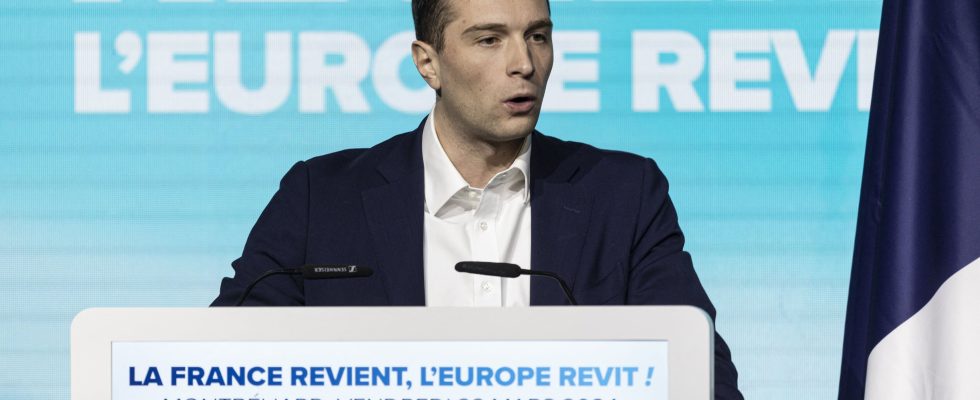The breakup seemed inexorable, given mutual declarations in recent weeks. It took place this Tuesday, May 21. The National Rally will no longer sit with the AfD, the German far-right party, in the European Parliament. A choice coming from the president of the RN and head of the list for the Europeans, Jordan Bardella, his campaign director Alexandre Loubet told AFP, confirming information from Release.
The last straw was a more than ambiguous statement on the Nazi regime from the head of the AfD list for these European elections, Maximilian Krah. “I will never say that anyone who wore an SS uniform was automatically a criminal,” he told the Italian newspaper La Republica, in a strange attempt to rehabilitate the main group responsible for the Jewish genocide. “Among the 900,000 SS, there were also many farmers: there was certainly a high percentage of criminals, but they were not all.”
Repeated controversies
But we didn’t have to wait until this weekend to see members of the AfD getting bogged down in controversial statements or meetings. The same Maximilian Krah had already been called by his party to withdraw from the European campaign after one of his parliamentary collaborators in Brussels had been indicted for suspicion of espionage in favor of China. The number 2 on the list for the European elections, Petr Bystron, was pinned in the Russian propaganda network “Voices of Europe”, accused of having received money to promote the Kremlin.
But the AfD had also been at the heart of controversies for the participation of one of its leaders in a gathering in Vienna of the Austrian neo-Nazi movement, in which a project of “remigration” of nearly two million people was promoted. towards North Africa. The revelation of this meeting led to very large demonstrations in Germany, with several hundred thousand people marching and calling for the far-right party to be banned.
Increasing tensions
These repeated escapades had already led the National Rally to distance itself from its now ex-German partner. “We will have to discuss the differences, and see if these differences have or do not have consequences on the capacity that we have to ally ourselves in the same group”, declared Marine Le Pen at the end of January. On February 20, she and party president Jordan Bardella also had lunch with Alice Wiedel, co-president of the AfD, calling on her to reconsider this “remigration” proposal.
For its part, the AfD had little taste for the repeated remonstrances of the RN. Before finally counterattacking on the subject of Mayotte, questioning the respect for international law of its non-attachment to the Comoros archipelago. This is too much for Marine Le Pen, who very often shows her attachment to the archipelago. “The AfD would do better to take care of Germany’s problems and I am angry about this situation,” she replied at the time. Before continuing last weekend: “The AfD is not managed. This poses a concern which we will have to discuss when we think about the future group”. A discussion finally settled.
This distancing could, however, have strong consequences on the future composition of the European Parliament. Since 2019, the RN and the AfD have sat together within the Identity and Democracy group, where they provided the vast majority of seats. Enough to raise the question of the future allies of the National Rally in Brussels. Especially since the last major party in the ID group, the Italian League (24 MEPs), should see its number of elected representatives significantly dwindle in the election on June 9, to the detriment of Fratelli d’Italia, the party from the head of government, Giorgia Meloni.
